News
She changed her life. Now she’s helping other Somali women do the same.
13 years ago, Mako was a mother of six, unsure of how she could feed her family. Today, she’s telling other women to keep fighting.
Read MoreWhen women work, economies grow. Economic empowerment helps more women to work, which could earn the global market $7 trillion. Here’s what else you need to know.
“There is no wealth of a man that would prevent a woman from working to earn money,” a female small-business owner in the Democratic Republic of the Congo told the World Bank in a recent study on women’s economic empowerment.
In fact, the DRC has relatively high rates of workforce participation from women for its region, with many reporting to the World Bank that they want to support their families, earn respect from their husbands, avoid dependence on others, and simply enjoy their work.
However, there are still barriers that Congolese women face in finding work, made even more harsh by protracted conflict in the country, which in turn forces families from their homes. Mother-of-five Alice Masika Nzangura found this to be the case when she and her three youngest children fled violence in their home village of Kirumba. They moved through a few villages before settling in Mongothe, a village near Beni, in 2022.
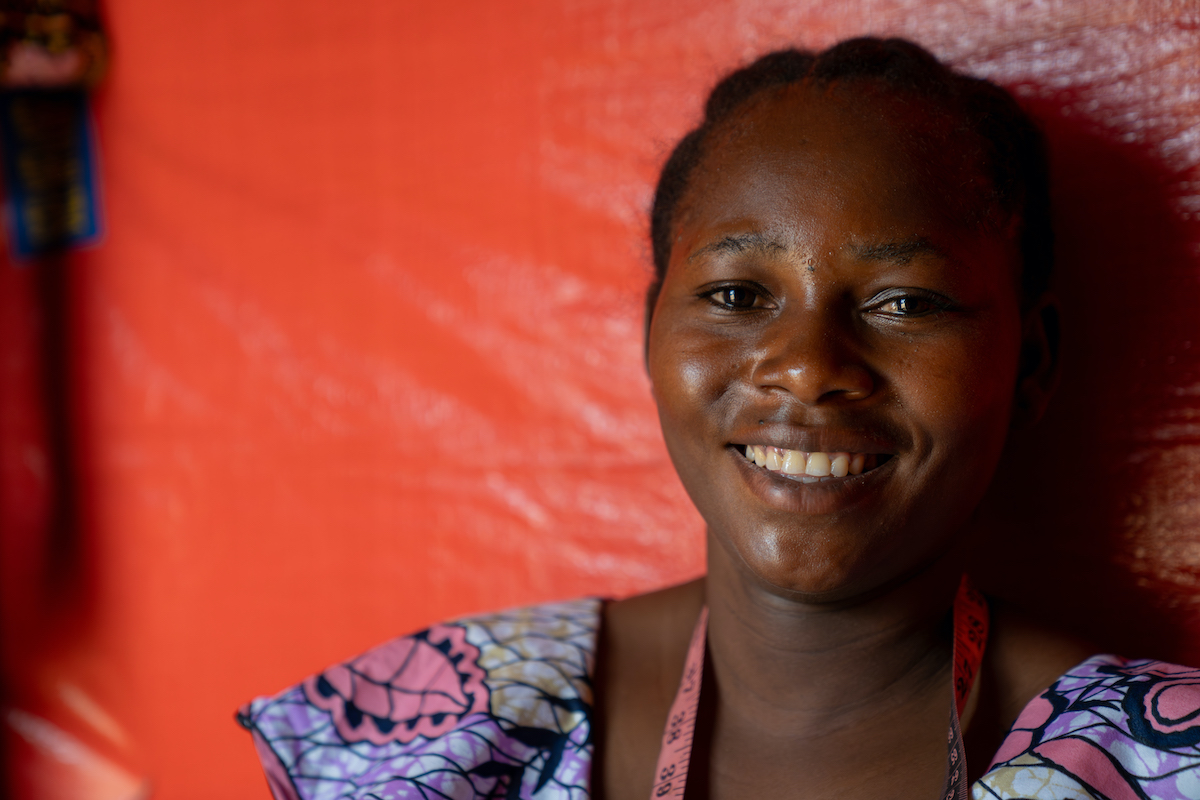
Alice tried to find work in Mongothe. “We had not been able to bring anything with us, so we started from scratch,” she says. She found odd jobs, doing laundry or picking cassava leaves for local families. “Life was very hard,” she adds, of living in a temporary displacement settlement while trying to make ends meet.
Globally, women are overrepresented in these types of informal and vulnerable labor sectors. Per the UN, it makes up nearly 60% of the global economy for women. In low-income countries like the DRC, that number is much higher, with roughly 90% of women finding work in these unstable environments. Alice’s work gathering cassava leaves hints at another harsh reality for millions of women who are overrepresented in seasonal, informal, part-time, and low-wage agricultural work. In some countries, they still aren’t allowed to own land.
However, Alice had a talent and passion for sewing, and was in luck: Her neighbor had a tailoring shop with two sewing machines. She received about $0.50 a day doing work in the shop. With the help of another NGO, she received about $100 through a series of startup grants, which she used to buy her own sewing machines and rent a tailoring shop.
Globally, the informal gig economy employs nearly 60% of women in the workforce. In low-income countries, that number is closer to 90%.
After the project with one NGO wrapped up, Alice learned about a Village Savings and Loans Association that Concern was starting in Mongothe as part of a larger project to build financial and economic stability in an area hit hard by poverty, instability, and conflict. The VSLA provides loans for its members, who buy shares of the association and earn interest on their investments. It also operates a solidarity fund for family and medical emergencies.
With 21 other members, the Mongothe VSLA launched last October. Members received business management training, equipment, and a monthly grant of $23 during their training to cover basic costs at home.
It was enough to help Alice grow her shop. With the extra machines, she took on students who then became her employees. A loan from her VSLA allowed her to purchase fabrics, which she now sells as well. Through her business classes with Concern, she also learned about diversifying her income sources. She sells popcorn, investing those earnings into her VSLA and earning three times what she puts in. She’s also studying livestock management. “I chose chickens because we can sell them and earn money to pay our children’s school fees.”
Alice now envisions a different future for herself than she did when she was in Kirumba. And it’s a good one: “I hope and expect that in a year I will be rich,” she says, smiling broadly. “I'll be a boss lady!”
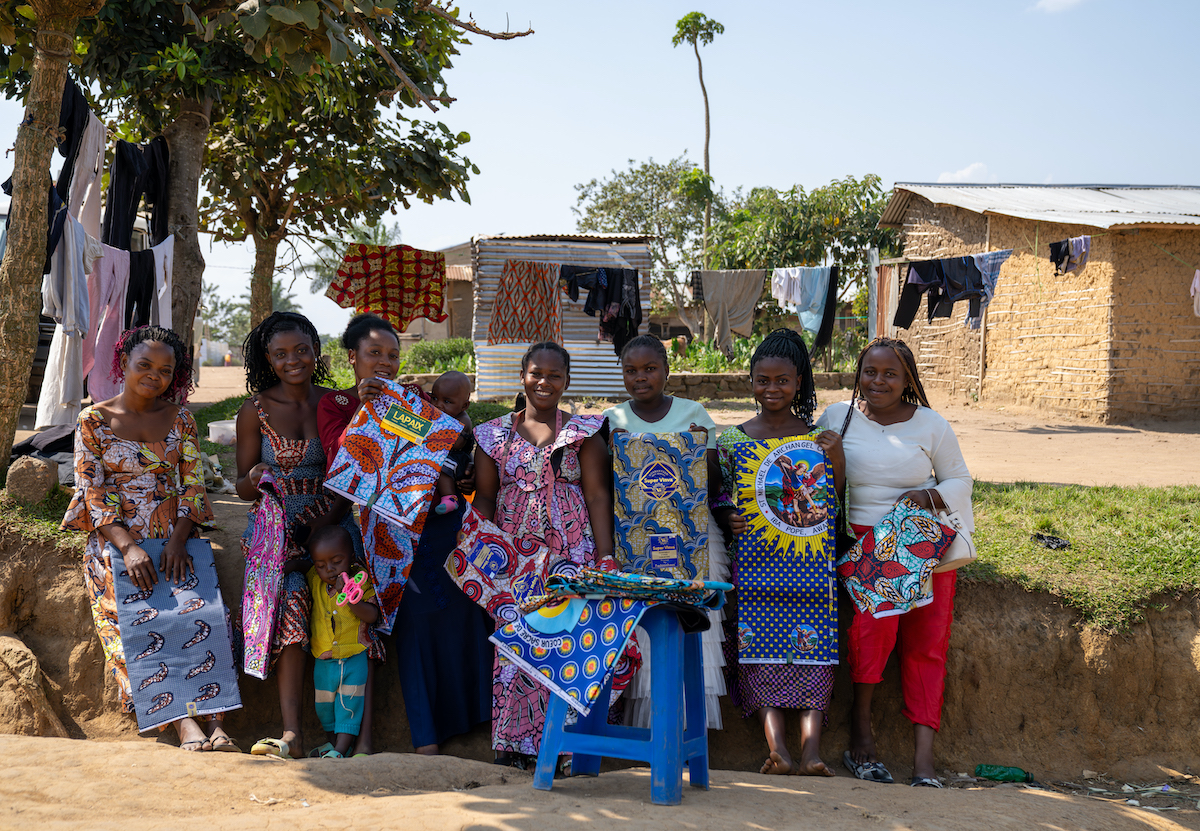
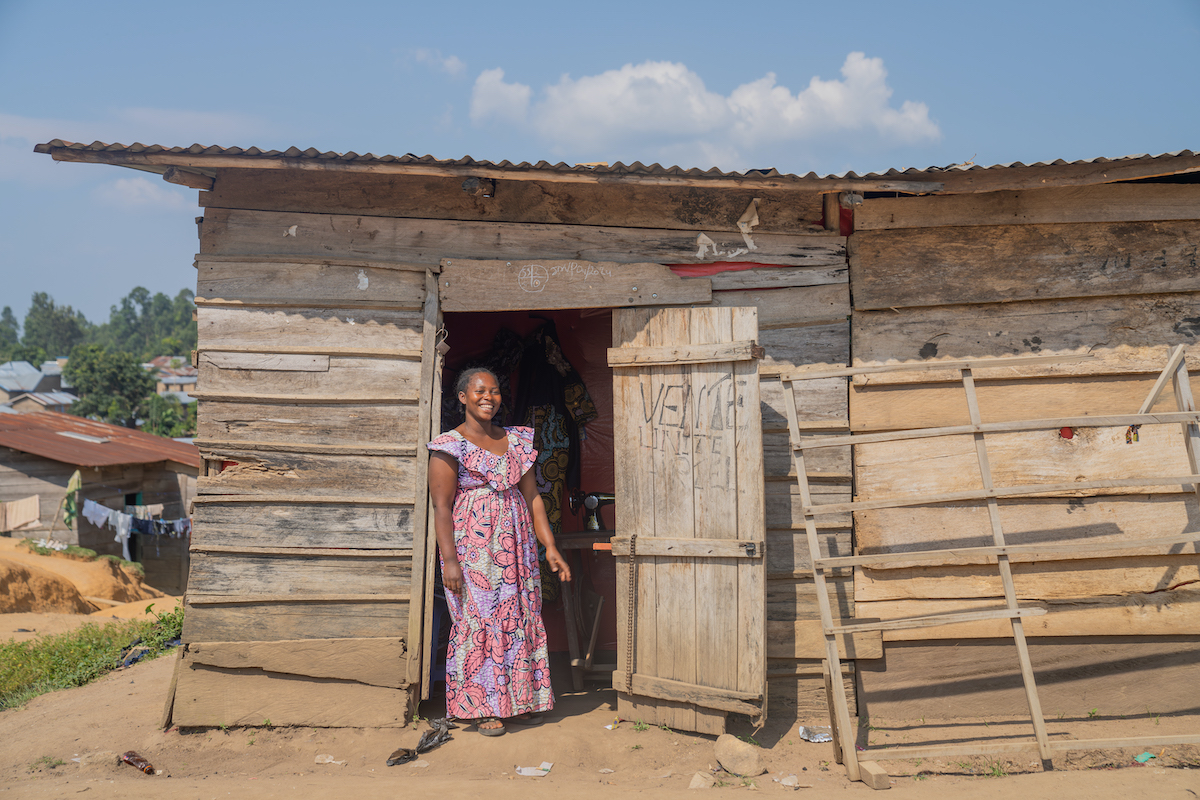
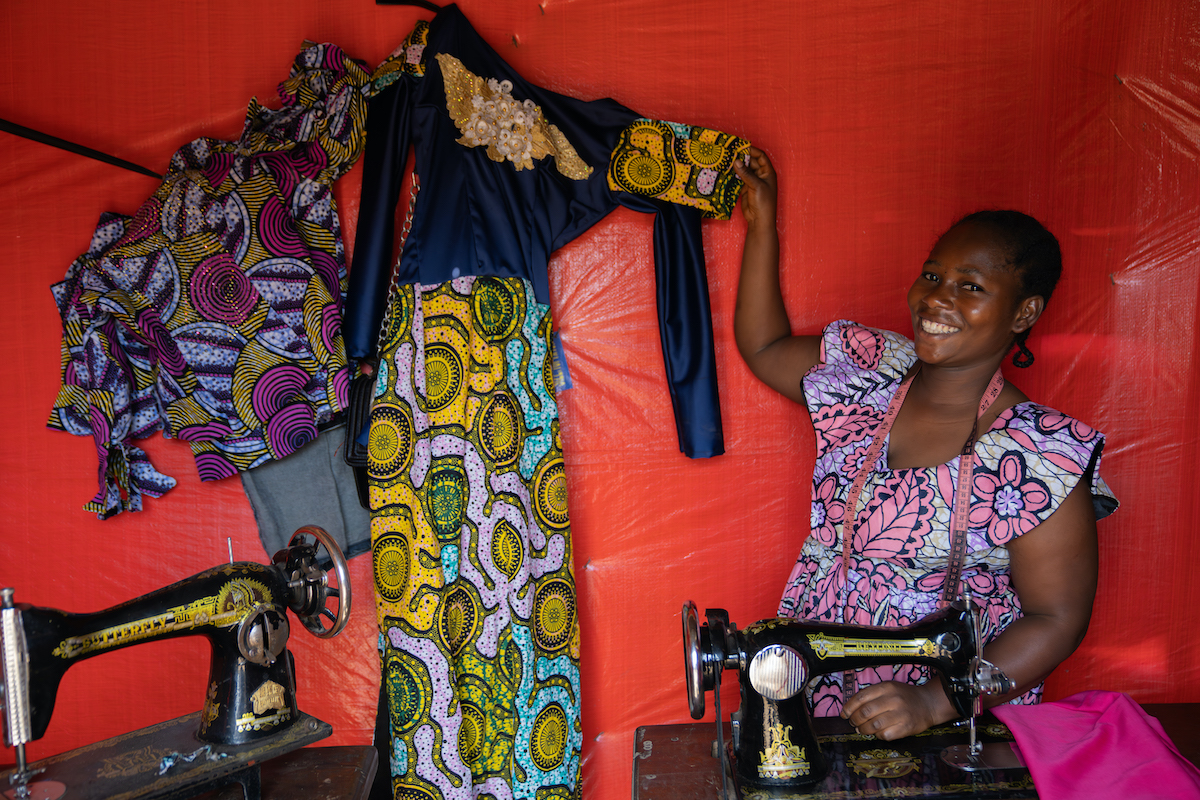
When more women are able to work, economies grow. A 2018 report from the International Monetary Fund notes that “the potential economic contribution from women remains untapped in many countries.”
By tapping into this potential, incomes statistically rise for both men and women. Economies also are able to diversify more, leading to greater stability. One Moody’s study from 2023 estimates that closing this gap could lead to a $7 trillion boost in the global economy.
Some of the biggest gains in economic empowerment for women would be in low- and middle-income countries. Recent studies cited in the IMF report have shown that the GDPs in Pakistan and Niger could grow by 30% and 32%, respectively.
The potential economic contribution from women remains untapped in many countries. In fact, it could lead to a $7 trillion boost in the global economy.
Domestically, the US GDP could increase by at least 5%. However, even with other countries, the US economy also stands to benefit. More economic empowerment in countries like Pakistan and Niger means a greater chance for future trading partners.
We’ve seen this happen in the past with Bangladesh and Rwanda. In 2023, Bangladesh imported $2.21 billion in goods from the United States — a 210% increase compared to 2013 ($712 million). In that same year, Rwanda imported $15.4 million in goods from the US, up nearly 400% from 2013. In that time, both countries focused on economic empowerment and inclusion for their female workforces.
Over 2.7 billion women around the world are legally restricted from having the same choice of jobs as men, according to UN Women. A 2023 report from the World Bank shows that, of 190 countries surveyed, more than one-third (69%) have laws that restrain women’s decisions to work.
Many of these countries are also countries in conflict, which presents an additional barrier to economic empowerment. Conflict carries severe economic impacts that become worse over time. At the same time, many women become the heads of their families during conflict, so the pressure to earn and support their families is even greater than before.
“I remember those days well,” says Mako Saney, a 55-year-old mother of six in Mogadishu, Somalia. “My children were so young and their father was unable to work. The whole country was in turmoil, and I had nothing. It was a hard time.”
Born in 1970, Mako grew up in a Somalia caught in cyclical crisis, including bouts of violence and political instability. Her children were born into similar circumstances. By 2010, the beginning of a major, two-year famine that killed over a quarter of a million people, the situation became dire, with few options available for any Somali woman looking for work.
In 2012, however, Mako learned about a program that Concern was running to increase women’s economic empowerment in the community. She wasn’t sure what to expect, but she signed up. It was better than nothing.
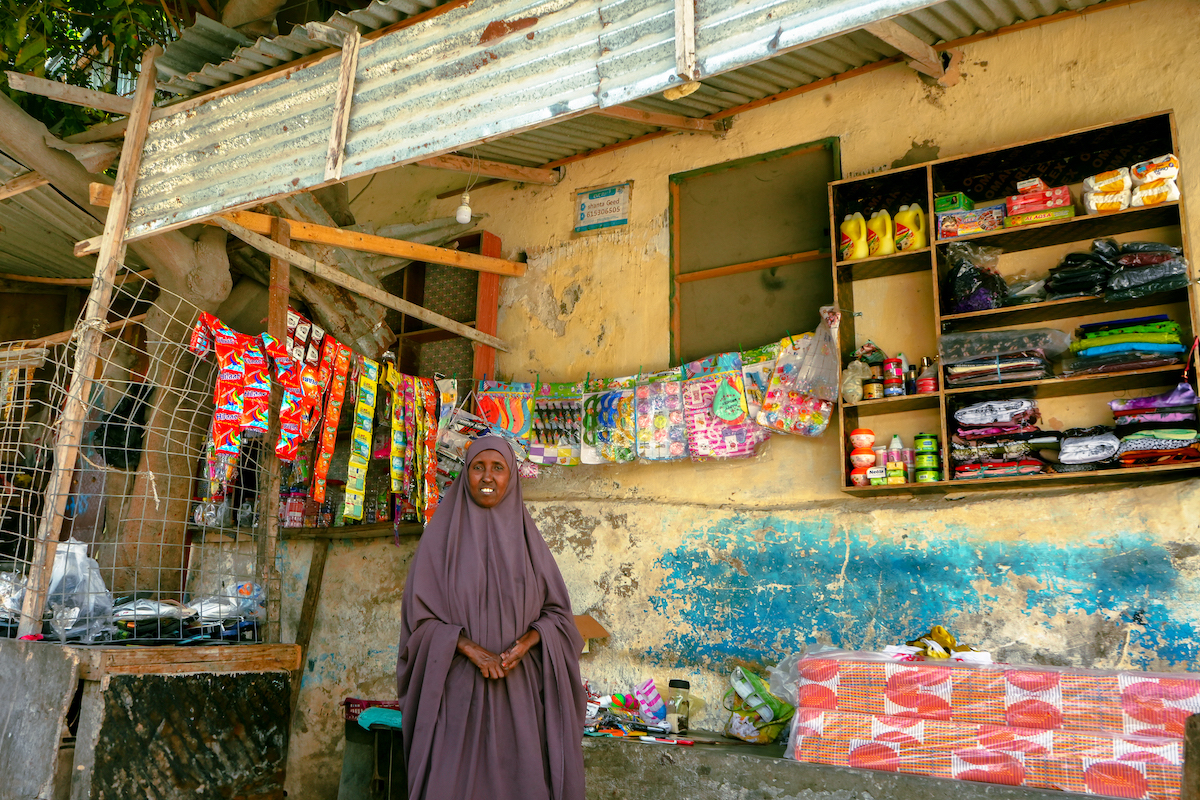
One of the keys to Mako’s success was in community: As part of the program, Concern used the Self-Help Group (SHG) model.
Similar to a VSLA, the SHG approach works with women individually, teaching them skills like business development. Then, we bring them together, where they can support and learn from each other. Working towards similar goals, these women share resources and build collective businesses that empower them both individually and as a community.
Mako’s group began as ten women. “We didn’t know each other at all, but we came together because we all wanted to change our lives,” she says. They began by selling small household items at market, but soon things started to grow — including their confidence. Eventually, they formed a cooperative.
Statistically, women reinvest 90% of what they earn into their families. Men reinvest just 35-40% of their earnings. As a result of her own economic and financial empowerment, Mako was able to send her children to both primary school and university.
But women go beyond their families: They also are more likely to reinvest in their communities. Alice is doing that in the DRC with her sewing business, helping others learn this vocation (as well as business management) so they can build their own businesses in the future.
Mako has likewise found greater purpose through her SHG. During a recent drought in Somalia, she and her SHG colleagues were able to gather supplies and help families hit hardest by the losses. “I was no longer focused on my own survival. I was part of something bigger, helping others in my community.”